The bear can’t tell how long it’s been since the trap closed around its leg. It struggles, but that has only made the contraption’s teeth dig tighter into its flesh.
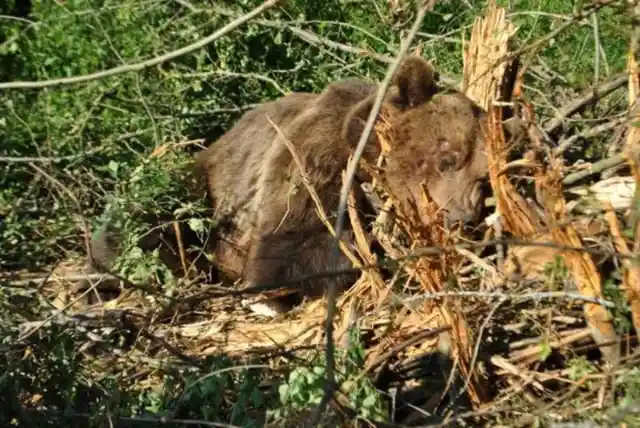
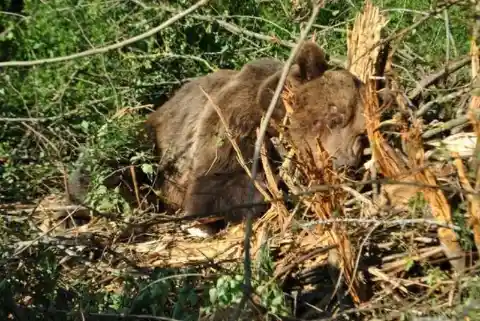
Unable to move and near-blind with pain, it can feel its life draining away fast. Then a vague shape moves in the distance…
This horrifying event occurred in June 2016. The brown bear in question was simply wandering the woods near a village in Kosovo’s Municipality of Suhareka.
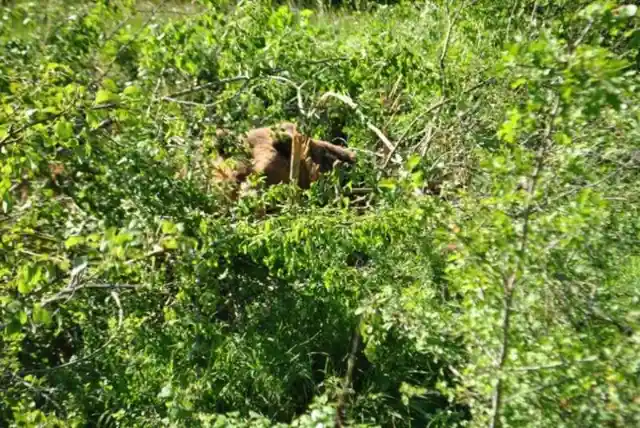
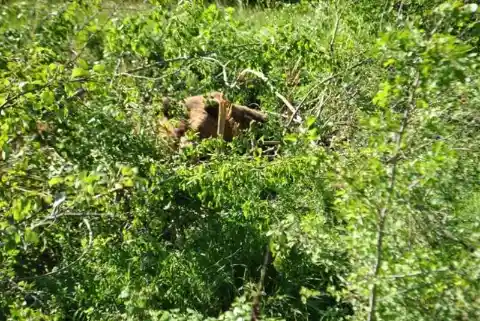
Suddenly, the creature’s paw was caught in a hidden wire trap, and the snare tightened around it.
This is particularly disturbing as hunting has reduced the brown bear’s numbers quite dramatically in recent times.
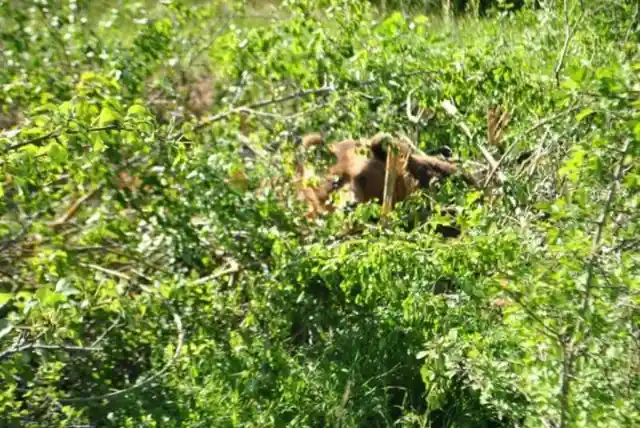
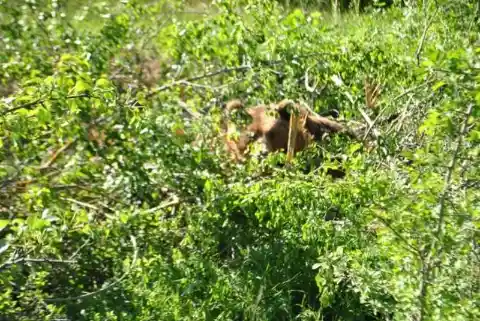
Indeed, even though the bear is classed as of “least concern” on the International Union for Conservation of Nature and Natural Resources’ red list, it is still a protected species in Serbia.
In fact, the government prohibited bear hunting in 2002, and yet poachers still illegally trap and kill the animals for their own personal gain. For instance, hunters will sell their pelts on the fur market, eat their meat and potentially use their fat for cooking.
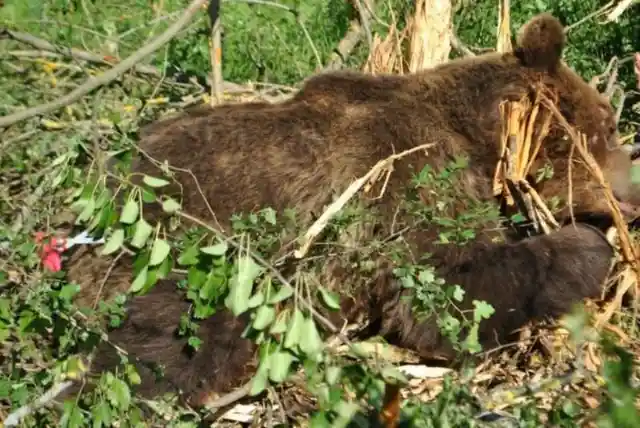
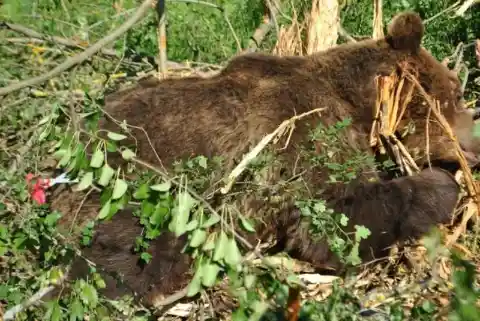
What’s more, gall bladders of bears are used in traditional Chinese medicine.
In this particular case, though, it’s not clear who set the snare. However, it undoubtedly closed on its intended target, as wire traps are traditionally used to catch bears in Russia.
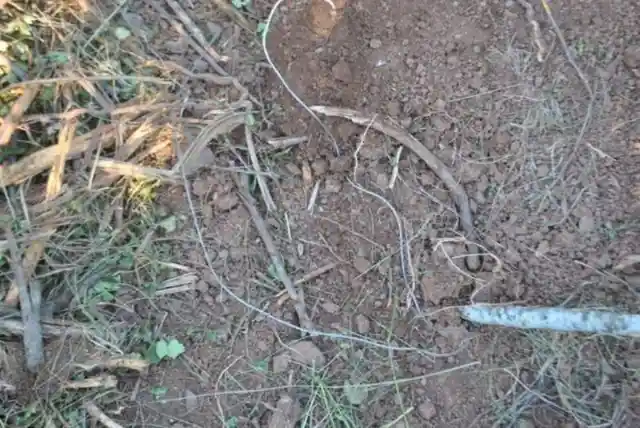
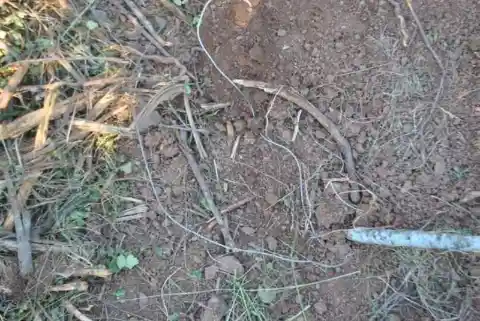
The contraption is made from a metal noose that’s laid in a bear’s path with the other end tied to a tree. The loop catches around a leg or paw and cuts into the animal’s flesh as it attempts to free itself.
And if the animal is still alive when the hunter visits the trap, it won’t be for long.
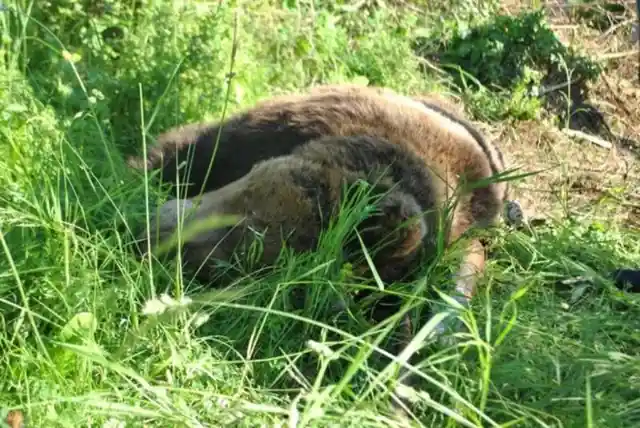
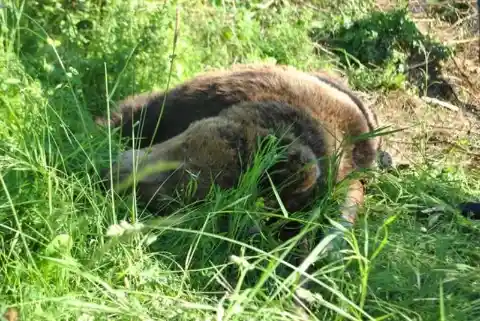
This bear, then, was staring at death from either its wound or a gunshot – when something else came into view that would lead to its salvation.
In fact, some passing police officers had noticed the still form of the bear and realized that something wasn’t right.
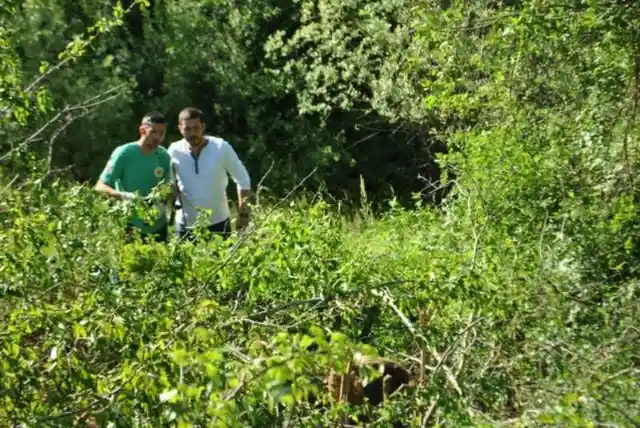
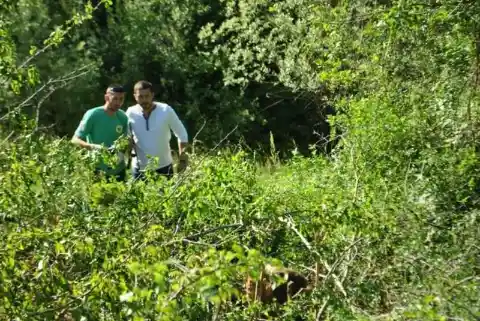
So, without the experience or resources to deal with the wounded animal, they contacted the local bear sanctuary for assistance.
“We received an urgent call by officers from the Ministry of Environment and from the Police,” Bear Sanctuary Prishtina wrote on their Facebook page.
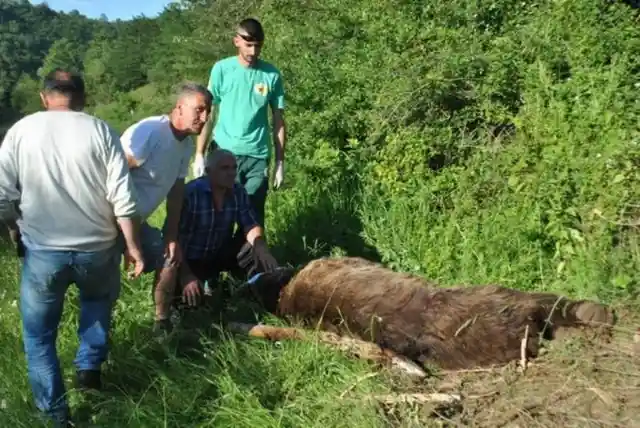
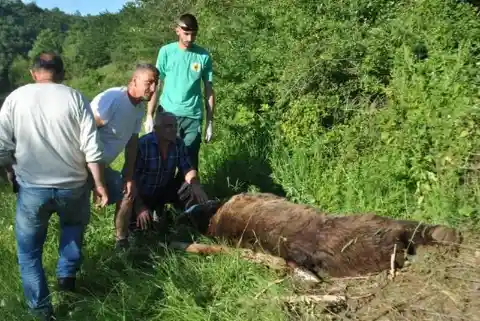
Thankfully, the sanctuary could be of some help.
Bear Sanctuary Prishtina was founded in 2013 by Four Paws Austria, the Kosovar Ministry of Environment, the law firm Franke & Partner and the peacekeeping Kosovo Force.
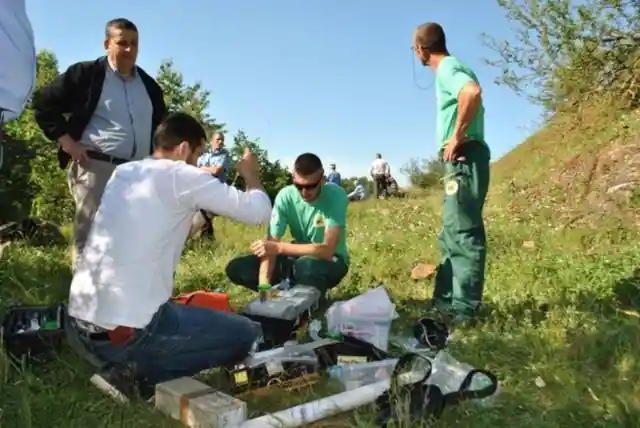
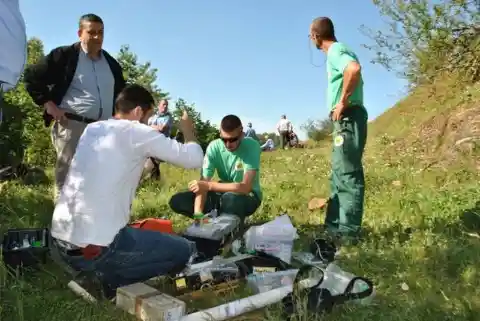
It has a national park that is currently home to a number of rescued brown bears.
Sadly, Kosovo itself was the site of a number of privately-kept brown bears known as “restaurant bears.” These animals were locked in small cages in front of their owners’ diners in order to draw in crowds and profits.
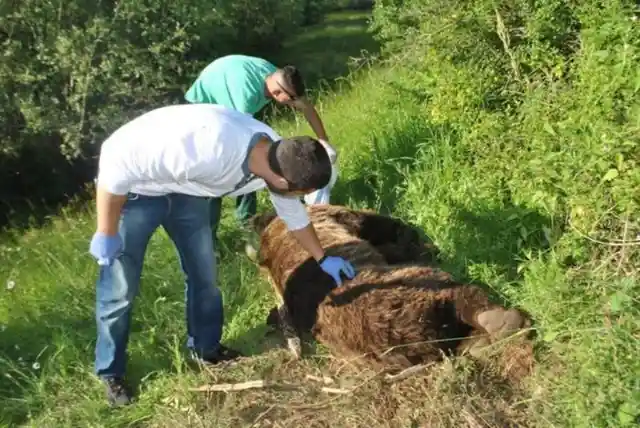
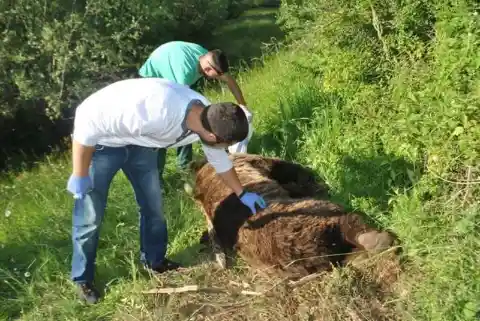
The first law to ban the practice came in 2010, and – naturally – it became clear that the captive bears would be better suited to a protected environment.
Therefore, the sanctuary began working to relocate the animals. And by 2013 the sanctuary had become the official new home for 13 rescued bears.
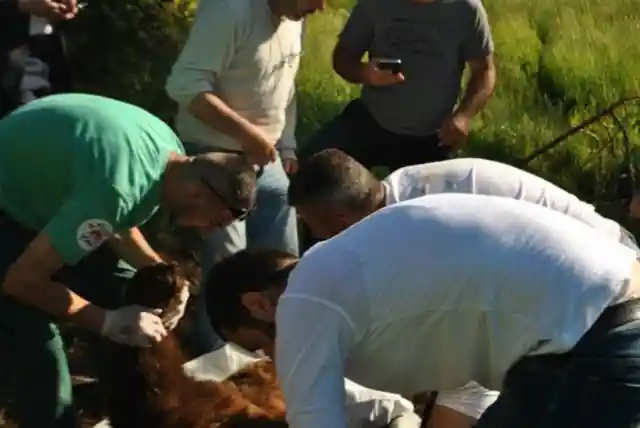
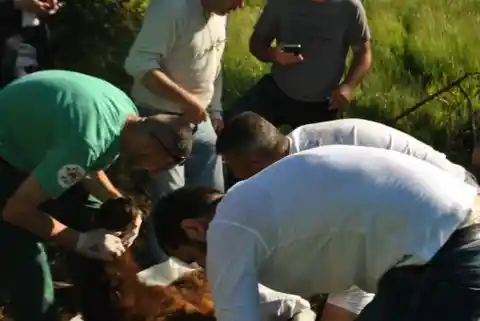
Additionally, Bear Sanctuary Prishtina is working to educate people about environmental issues and animal welfare problems.
Naturally, the sanctuary has a rescue team familiar with relocating captive bears. However, they don’t usually get a call to help wild ones.
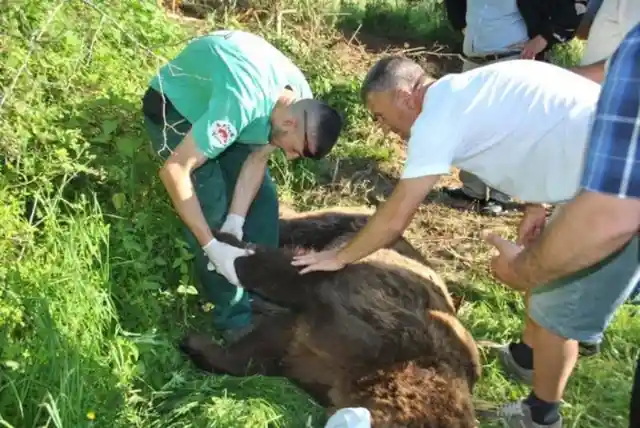
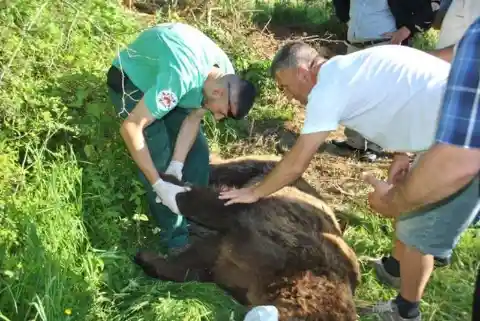
This would, then, be a new challenge for the group and their medical expert, local Four Paws veterinarian Selatin Mjeku.
“Though our sanctuary has rescued and takes care of bears which were kept in captivity, this is a special case when we were asked by responsible institutions to rescue a wild bear,” the sanctuary’s Facebook post said.
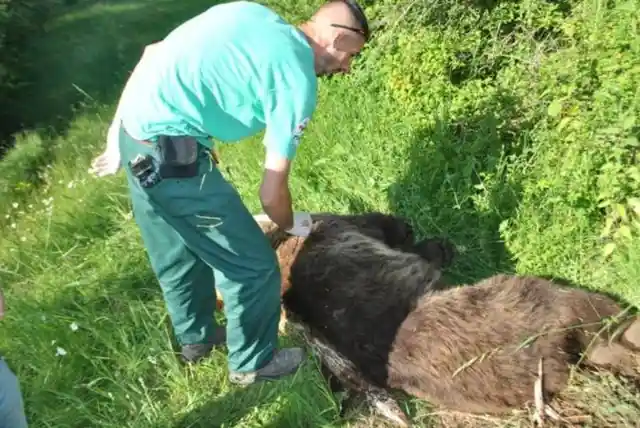
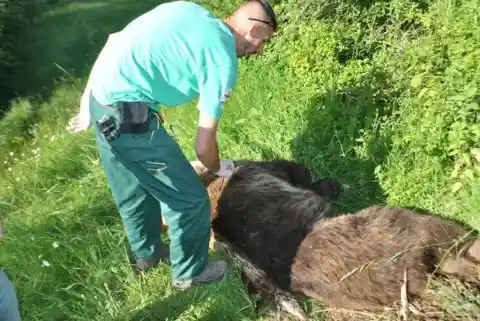
Nevertheless, the team still “urgently headed to the village” and started looking at “procedures for rescuing and treatment of this bear.”
Although the bear was wounded and the wire trap had the animal immobilized, the team still needed to sedate the bear before they could work on it.
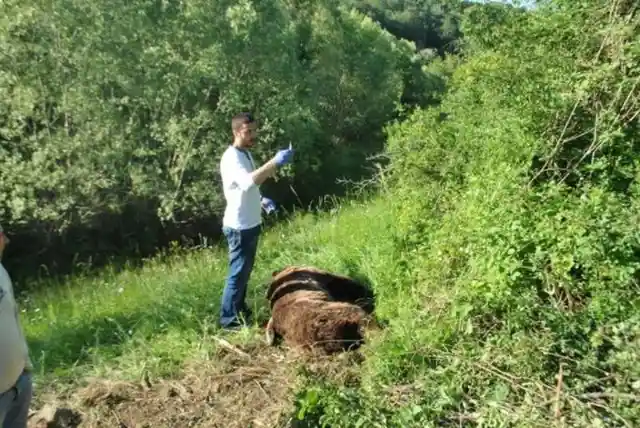
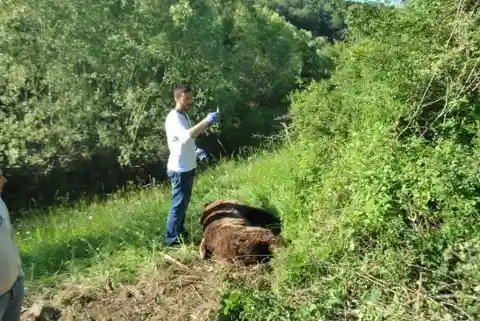
The procedure allowed Mjeku to check the bear’s wounds and treat them without causing the animal further pain or stress.
“As soon as the bear was tranquilized the together with Bear Sanctuary Prishtina team removed the trap from the bear and treated the wound,” they reported.
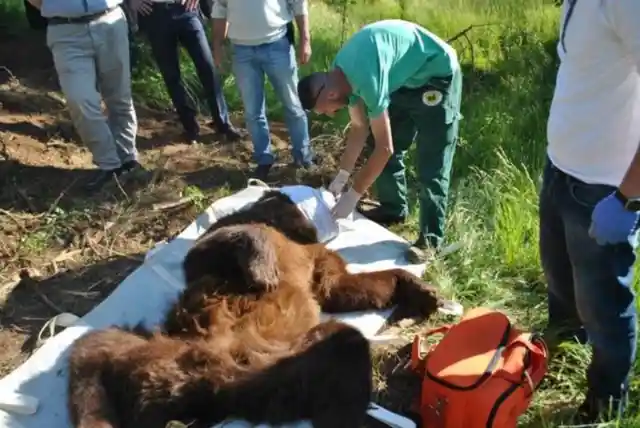
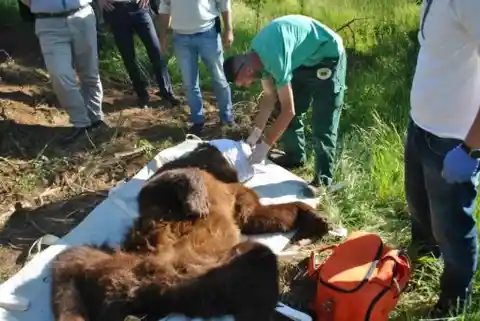
Indeed, the wound can have long-term consequences, even if an animal escapes from a wire trap.
For example, snare trap loops can remain embedded in the flesh of victims that escape their tethers, leading to a slow and painful death from infection.
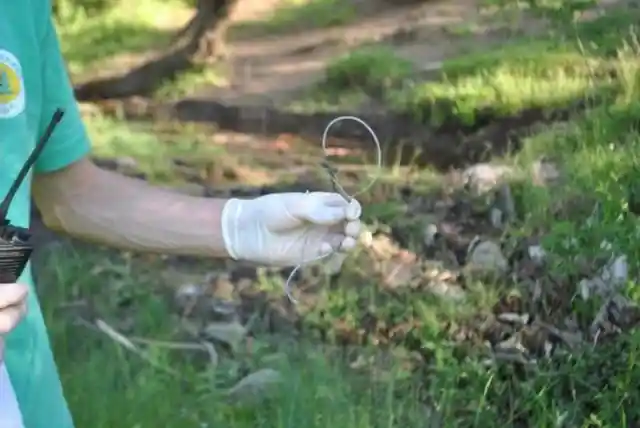
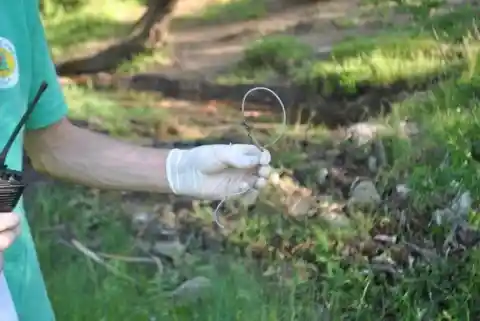
The traps are also an unreliable method of catching prey, since they can close around non-intended animals like deer – and lead to life-threatening broken limbs.
Here, then, Mjeku disinfected the bear’s wounds to prevent any long-term damage and gave the ursine a medical check-up.
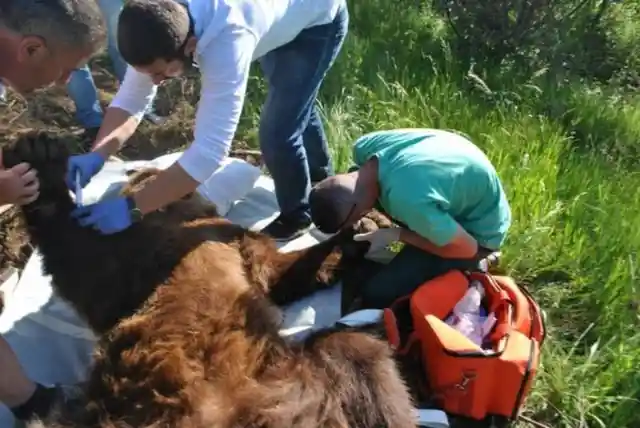
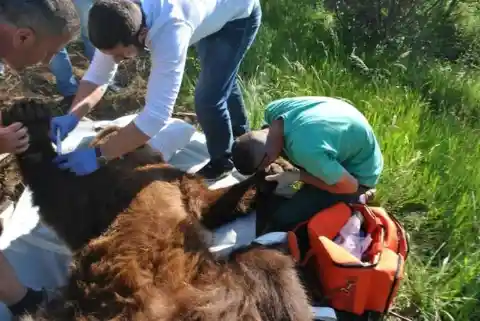
“After general health check of the bear, the came conclusion that the bear was in good condition,” the sanctuary wrote.
“The whole staff… left the bear near the forest in order for him to be able to go back to his normal life in the wild, where he belongs,” they reported.
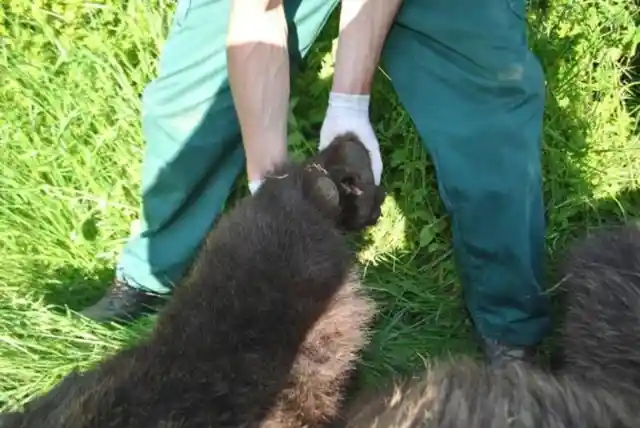
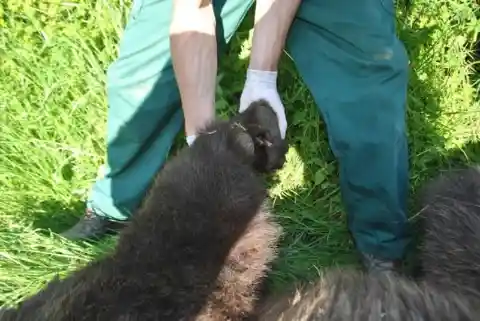
In fact, the bear ambled along on its way back home when it woke up.
“The same day we received a last confirmation from the villagers that the bear was successfully returned into the wild,” the sanctuary reported.
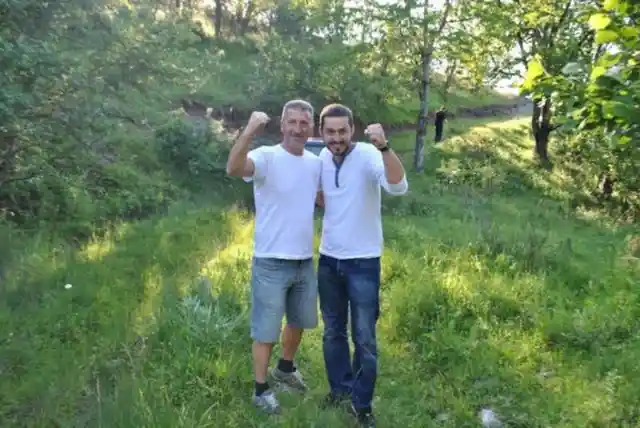
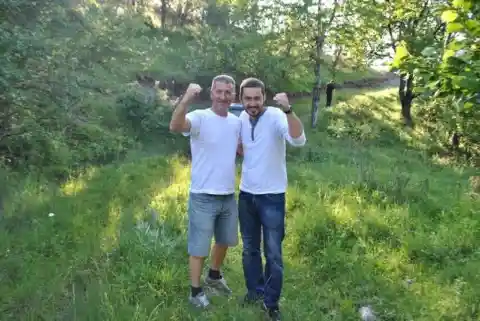
The team, putting their skills to the test, performed admirably and saved the life of another bear.